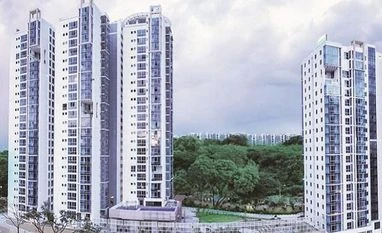Media reports of the Salarpuria Sattva group taking over the consumer electronics business of Cloudtail India, the largest seller on Amazon, have not come as a surprise in real estate circles.
This is because of the penchant of the Bijay Agarwal family, the promoters, to diversify into new-age businesses.
In the past three years, the 35-year-old group got into many new-age businesses such as co-living (student housing and accommodation for working professionals), co-working, data centres, etc.
Besides the commercial and residential real estate business, the Bengaluru-based group has verticals such as embedded technology (which provides embedded product designs and engineering services), defence and aerospace services, education, and so on.
On Thursday, managed office space provider Simpliwork Offices, co-promoted by the group, said it would spend Rs 650 crore in the next two years to expand its footprint.
Simpliwork said it planned to double the inventory to 6 million square feet by the end of 2023.
In 2018, Salarpuria acquired 50 per cent in the company. In April 2019, the group invested about Rs 64 crore in co-living space Colive.
Mayank Saksena, chief executive officer (land services) at Anarock Property Consultants, who has been watching the group for 20 years, said diversification and investment in new areas had been the hallmark of the group.
“They were investing in businesses such as restaurants some 15 years ago and the entry of the next generation has accelerated diversification,” Saksena said.
Bijay Agarwal’s son Shivam and daughter Adrija are involved in the new ventures, he said.
“They are well-funded and less leveraged, and have good systems and processes in place. They have the ability to acquire and streamline new businesses,” he said.
Take Simpliwork, for instance. In 2021-22, the company is estimating a top line of Rs 450-500 crore with net positive earnings before interest, tax, depreciation, and amortisation. It is planning to list over the next three to five years.
The Salarpuria group did not respond to calls and messages, requesting comments.
Tie-up with PE funds
“They have forged relationships with private equity funds and done strategic initiates. They are leveraging their brand and there is nothing wrong in that,” said Sanjay Dutt, managing director and chief executive of Tata Realty and Infrastructure.
The group formed an equal joint venture with US-based fund manager Blackstone in 2015.
In 2018, Blackstone invested around Rs 800 crore in two under-construction office projects in Hyderabad, being developed by the group. It also bought 3.3 million square feet in the Global Village Tech Park in Bengaluru, owned by Café Coffee Day, for Rs 2,500 crore.
In 2016, Salarpuria formed a development platform with Apollo Asia RE Singapore to acquire projects in Bengaluru and Vadodara.
“The leadership (of Salarpuria) has taken right calls across asset classes, including new-age businesses, and proactively managing them and setting highest standards of governance,” said the head of a US-based fund manager.
The advantage of partnering Blackstone is that it can exit at any time though it would not want to do it, the PE head said, adding that the diversification strategy can be advantageous as not all sectors would face a slowdown at the same time.
“If the residential does not do well, the office takes care of the finances and vice versa. Anyway, new-age businesses do not need much equity,” he said.
Scale of business
In 1993, the group bought a plot of 20,000 square feet in Bengaluru. Then it created offices, IT parks, residential properties, malls, and hotels, besides getting into areas such as co-living.
With a major presence in Bengaluru, Hyderabad, and five other cities, the company has more than 120 projects (commercial and residential) under its belt, with about 35 million square feet of development.
“With the economy growing at a faster pace in the past few years, the company’s focus shifted to commercial spaces and IT tech parks,” its website says.
The group is said to be foraying into Mumbai. “For diversification, money is coming from real estate development.
Even if real estate goes down for some time, its investments will pay off,” said Saksena.
Unlock 30+ premium stories daily hand-picked by our editors, across devices on browser and app.
Pick your 5 favourite companies, get a daily email with all news updates on them.
Full access to our intuitive epaper - clip, save, share articles from any device; newspaper archives from 2006.
Preferential invites to Business Standard events.
Curated newsletters on markets, personal finance, policy & politics, start-ups, technology, and more.
)